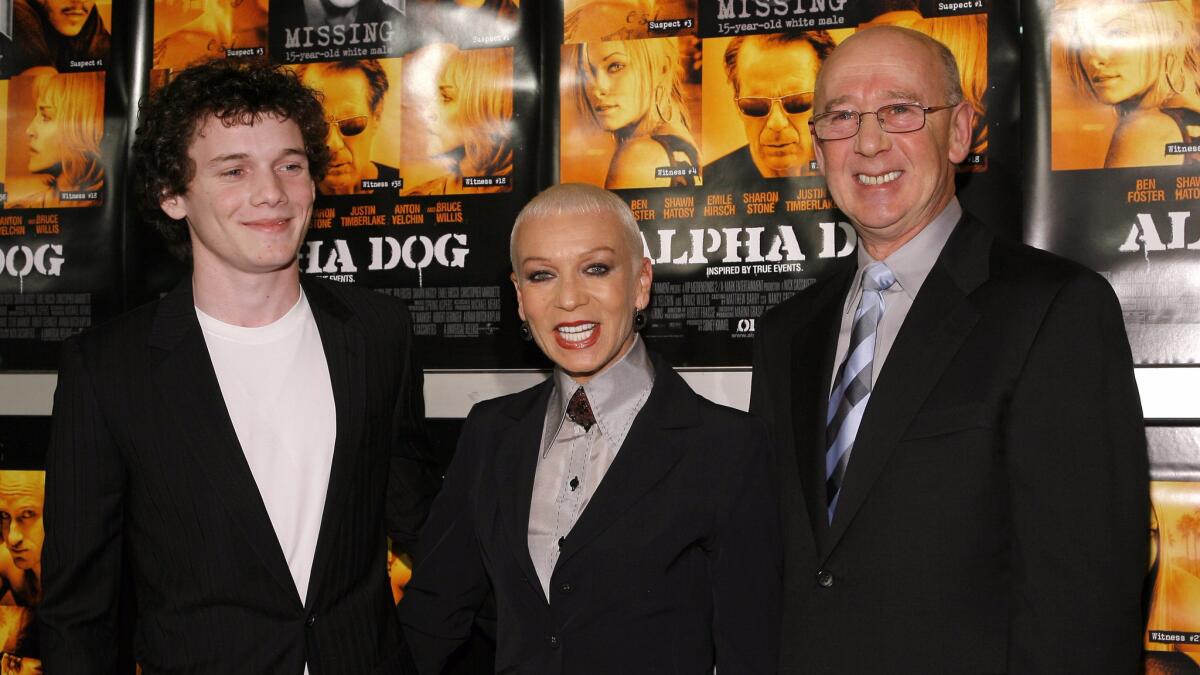From the Archives: Former Soviet skate stars top bill at Knott’s

- Share via
Reporting from buena park — Shortly after the figure skating team of Irina Korina and Viktor Yelchin finished their first rehearsal for this holiday’s edition of Knott’s Berry Farm’s “Festival on Ice,” Korina had a question about a routine set to “Silent Night.”
“We have heard this music before,” she said. “What is it?”
Their ignorance of what is perhaps the world’s best-known Christmas carol may be partly due to the fact that the couple is Jewish. But the main reason is that they have only recently arrived in the United States from the Soviet Union, where Dec. 25 is but another date on the calendar and it is New Year’s Eve that calls for celebrating with gifts under a tree.
As stars for 15 years of the Leningrad Ice Ballet, the skaters, who are married, were national celebrities. Financially well off by Soviet standards, they owned their own flat in Leningrad as well as a home in the country.
But on Sept. 12, they left their native city with then-6-month-old son Anton, Korina’s father and Yelchin’s mother, and settled in Los Angeles with Yelchin’s brother Eugene, a free-lance illustrator who lives in the Silverlake district. The five stayed briefly with Eugene and now share an apartment in West Hollywood.
Unlike their more famous compatriots, Ludmila and Oleg Protopopov (the 1964 and 1968 Olympic Pair Champions who now live in Switzerland), Korina, 32, and Yelchin, 38, did not defect; they are officially classified as refugees. Asked why they decided to forsake fame and relative fortune to start over again in the United States, the couple answers immediately, as one:
“Anton.”
“We were afraid for our son,” explained Yelchin, sitting with his extended family in the couple’s dressing room during a rehearsal break at Knott’s Good Time Theatre, where the show runs until New Year’s Day. “It is a very bad situation over there. I would get angry, too--I’d say, ‘Why should we have to buy things on the black market? Why should we have to stand in line?’ ”
Then, too, there was religious and political oppression. In 1972, as the nationally third-ranked pair team, they qualified for the Olympics but were not permitted to go because of their religion. More recently, a production they choreographed was performed by the Leningrad Ice Ballet only after other choreographers’ names replaced theirs for public credit. And for three years after Eugene Yelchin had moved to the United States, married to an American woman he met in Leningrad, the skaters were forbidden to perform outside their own country.
“They said, ‘We cannot find your forms, you must stay home,’ ” Korina recalled. “Then Gorbachev came in, and we could skate abroad again. They were three difficult years.”
They are adjusting quickly to American life, despite some early misgivings. “You have propaganda (about the U.S.S.R.), but we have propaganda, too,” Yelchin noted. “Every day we heard about capitalism; that man in America is a wolf.” Added Korina, “We thought about it, but since we’ve come we see only smiles.”
It did not take long to discover some of the elements that particularly define Los Angeles. “What’s especially good for me is Melrose (Avenue)!” Korina said. “I like the people on the street and the stores.”
Yelchin said, “Everyone here wants to make movies. My brother studied at USC and wants to direct an independent film.” Korina added, “A woman came up, saw Anton, and said, ‘He’s beautiful. He will be actor.’ ”
Almost immediately after their arrival, the skaters were signed for representation by manager Michael Rosenberg, whose other clients include 1988 Olympic silver medalist Elizabeth Manley and former world pair champions Tai Babilonia and Randy Gardner. They made their U.S. debut last month as guest stars of Richard Porter’s “Celebration on Ice” show at Bally’s Grand Hotel and Casino in Atlantic City, then traveled to Ottawa to take part in the World Cup of Figure Skating competition, placing fourth.
Skating in the West bears some similarity to their Soviet experience--”As principals, we’re still seeing hotels, rinks, always talking about skating,” Yelchin noted--but has so far yielded one major difference. “We were stars in Leningrad, but that did not have the same meaning as here,” Yelchin said. “In Leningrad, we could say, ‘Today, we will take it easy.’ At Bally’s, we were billed as very special guest stars, and every day we had to be great, great, great.”
They have found that North American audiences and skaters alike are receptive to their skating style, which combines classic Soviet grace and lyricism with such precisely timed acrobatic moves as a pull-through in which Korina somehow manages to go from a lift to an upside-down position and through her husband’s legs in a matter of seconds.
See the most-read stories in Entertainment this hour >>
MORE ON ANTON YELCHIN
Anton Yelchin, actor in ‘Star Trek’ films, dies in freak car accident at age 27
Director Drake Doremus describes Anton Yelchin as possessing a child-like joy and an old soul
When Anton Yelchin met Anthony Hopkins: An Oscar winner becomes a mentor to a 12-year-old actor
More to Read
The biggest entertainment stories
Get our big stories about Hollywood, film, television, music, arts, culture and more right in your inbox as soon as they publish.
You may occasionally receive promotional content from the Los Angeles Times.










